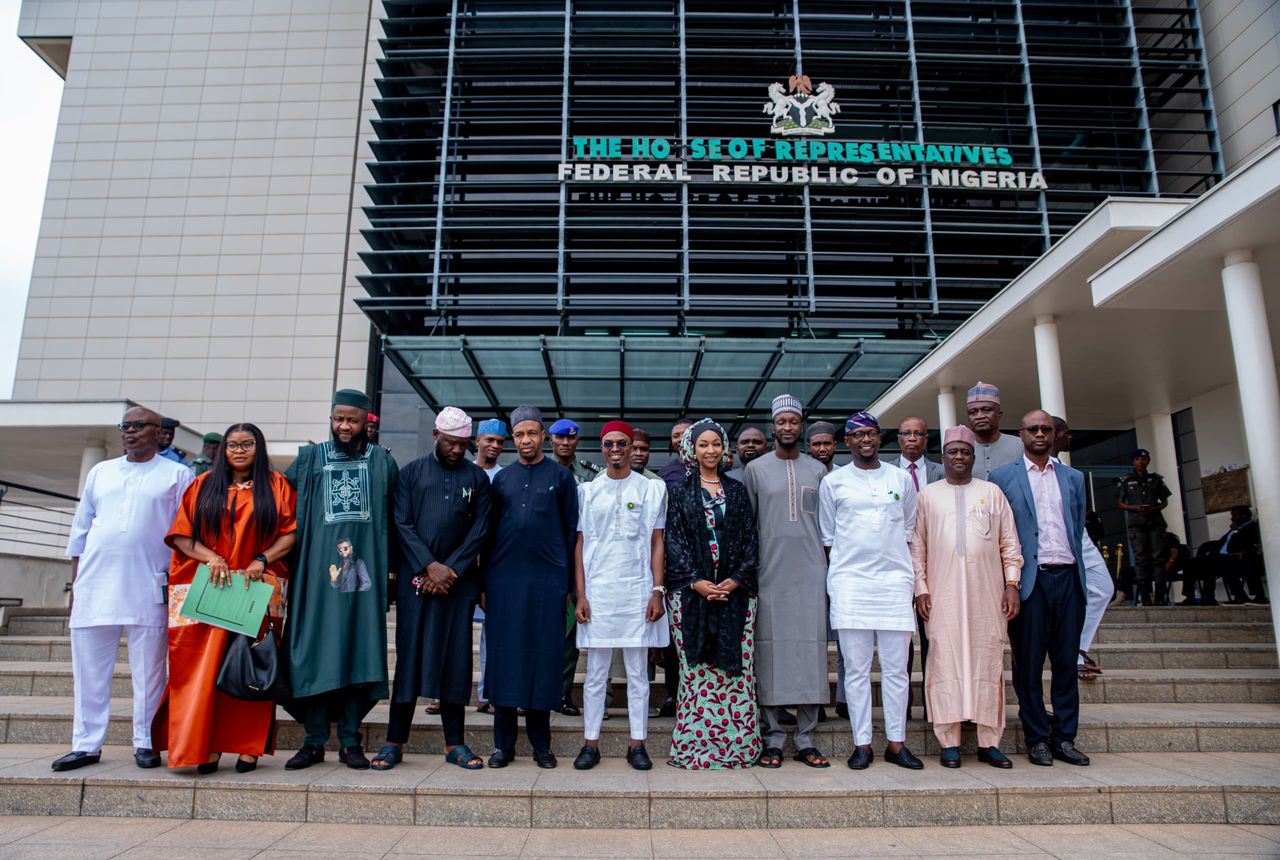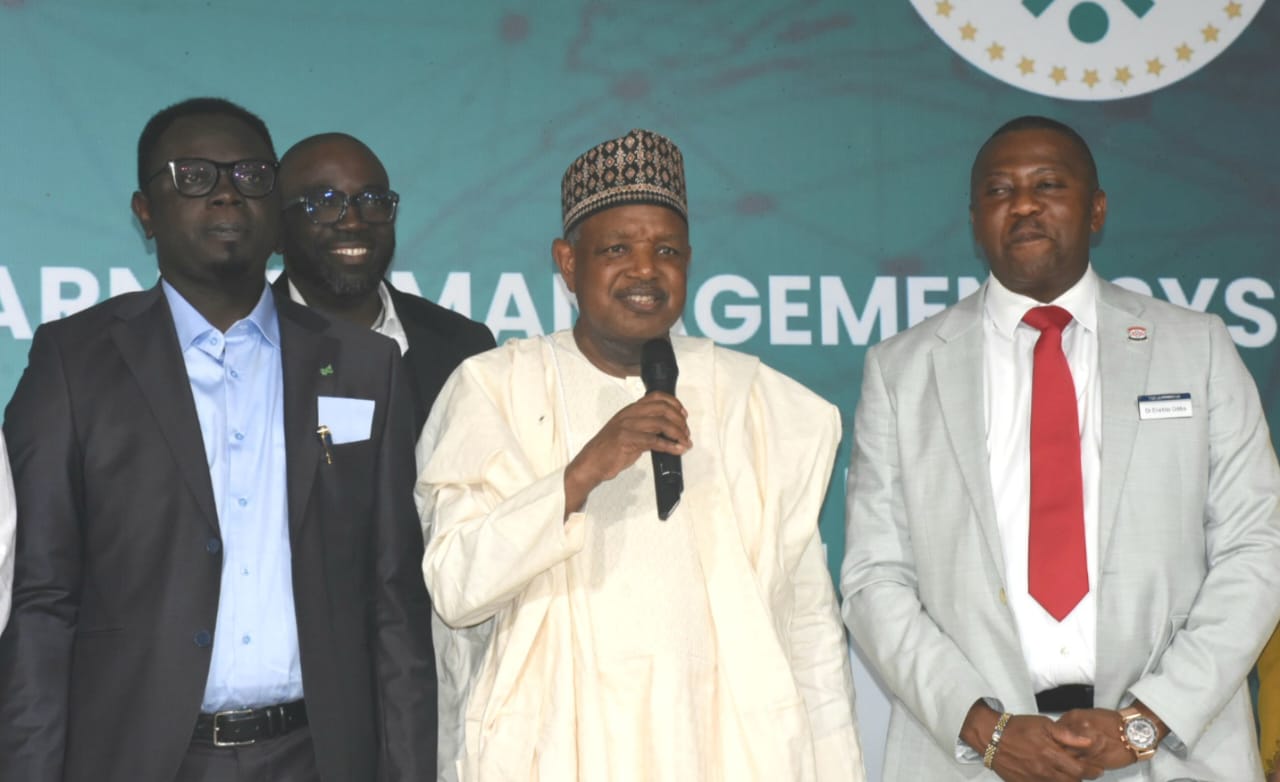Business
Ministry of Arts, Culture and Creative Economy Presents Budget Performance Report to National Assembly

Joel Ajayi
The Ministry of Art, Culture, Tourism and Creative Economy has presented its budget performance report to the National Assembly, highlighting the ministry’s achievements, challenges, and future plans.
The report which was presented to the House Committee on Art, Culture and Creative Economy on Wednesday, detailed the ministry’s efforts to promote Nigeria’s cultural heritage, support the growth of the creative industry, and drive economic growth.
The ministry’s initiatives include developing a robust intellectual property policy, investing in infrastructure, and fostering collaboration with stakeholders.
The ministry’s budget performance presentation which highlighted its eight-point plan, initiatives such as Nigeria Destination 2030, skills development, policy frameworks, intellectual property protection, strategic partnerships, growth targets, digital transformation, and cultural heritage preservation was given a thumbs up by the House committee.
During the presentation, the minister, Barr Hannatu Musa Musawa highlighted the challenges faced by the ministry, including limited resources and infrastructure. Despite these challenges, she said that the ministry has made significant progress in promoting Nigerian culture and supporting the creative industry.
Musawa also emphasized the importance of collaboration and partnership in driving the growth of the creative industry.
“We cannot do this alone. We need to work together with stakeholders, including industry experts, international partners, and the National Assembly, to drive economic growth and job creation”.
The minister explained that the ministry’s initiatives are expected to have a significant impact on the creative industry, generating revenue, creating jobs, and promoting Nigerian culture globally. She stated that the ministry is also exploring ways to develop infrastructure, including a physical Bollywood-style destination, and creating a streaming platform to showcase Nigerian content.
“The ministry has also secured a grant from the French treasury to support infrastructure development, and is working to leverage international partnerships to drive growth in the creative industry” the minister said.
Earlier, the Permanent Secretary of the Ministry Dr Mukhtar Yawale Muhammed, MFR, mni. highlighted key achievements and budget performance in the sector as well as the ministry’s GDP contribution to the economy, tourism revenue accrued, and project implementation.
The Chairman, House Committee on Art, Culture and Creative Economy Hon. Gabriel Saleh Zok commended the ministry’s initiatives and expressed the Committee’s commitment to support the growth of the creative industry.
“We are here to access your budget performance and ensure effective utilization of funds appropriated. We expect to have a closer working relationship with the ministry”.
The interaction with the House Committee members provided insights into the Ministry’s efforts to drive economic growth and development through strategic initiatives and project implementation.
Business
FG, Investonaire Academy Unveil National Programme to Equip 100,000 Youths with Financial Skills, Digital Wealth Tools

By Joel Ajayi
The Federal Government, in collaboration with Investonaire Academy, has unveiled a nationwide financial literacy and wealth-building programme targeting more than 100,000 young Nigerians. The initiative is designed to equip participants with practical skills in budgeting, saving, investing, asset building, and long-term financial planning, positioning them for sustainable prosperity in a rapidly evolving economy.
Launched on Tuesday in Abuja, the Honourable Minister of Youth Development, Comrade Ayodele Olawande, described financial literacy as a necessary survival tool for young people confronting today’s economic realities.
He noted that the initiative represents the foundation of a broader vision expected to extend beyond Nigeria to other African nations and global markets.
Reaffirming the Federal Government’s commitment to supporting over 4,000 corps members annually, the Minister said the programme will provide platforms, resources, and skills needed for both job creation and employability.
“The young people who understand money — how to save, invest, build assets, and manage risk — are the ones who will lead Nigeria into prosperity,” he said.
A major highlight of the launch was the expansion of the Nigeria Youth Academy, a digital platform offering mentorship, training, and startup support. According to the Minister, more than 200 startups will receive empowerment through the Academy’s e-app platform before the end of the year.
He stressed the need for deeper collaboration with private organisations, innovators, and youth-focused groups, noting that government alone cannot drive youth development. He further encouraged young Nigerians to embrace skills acquisition, innovation, and digital enterprise, saying these remain critical to reducing the desire for migration and increasing self-reliance.
Outlining the Ministry’s long-term commitments, Olawande emphasized three priorities: supporting youth innovation, equipping them with growth tools, and safeguarding millions of Nigerian youths under the Ministry’s mandate.
Speaking at the launch, Sebastien Sicre, Chief Operating Officer of Investonaire Academy, said the programme was crafted to revolutionize the way Nigerian youths learn and apply financial knowledge. He highlighted the Academy’s gamified Learning Management System (LMS), which offers interactive learning tools, community forums, and real-time mentorship to make financial education engaging and accessible.
Complementing the digital platform is a new 200-square-metre physical training centre in Abuja, opposite the NNPC Towers, where in-person workshops and mentorship sessions will take place.
The curriculum covers key global asset classes — including equities, commodities, forex, and indices — ensuring participants gain a broad understanding of financial markets.
Sicre added that with Federal Government backing, the programme seeks to unlock new opportunities, strengthen youth participation in the digital economy, and reward outstanding participants through a $1 million funding pool to support new and existing ventures.
International Programme Director of Investonaire Academy, Dr. Enefola Odiba, explained that the initiative aims to bridge long-standing gaps in financial education among Nigerian youths. While schools teach many subjects, he said, essential financial skills are often missing.
“Many people can earn money — earning money can be easy. The real challenge is retaining, managing, and growing that money,” he noted.
Referencing the Central Bank of Nigeria’s definition of financial literacy, Odiba stated that implementation remains a major national challenge. He said the initiative brings together government agencies, youth groups, academic institutions, and private-sector partners to translate strategy into measurable impact.
The programme’s curriculum covers budgeting, saving, investing, and financial planning — areas where many young people struggle. By offering practical training, real-world insights, and guided mentorship, the initiative aims to build a generation of financially empowered youth capable of driving innovation, entrepreneurship, and sustainable economic growth.
With this partnership, the Federal Government and Investonaire Academy share a common goal: to empower young Nigerians with the financial intelligence and digital tools needed to build wealth, grow businesses, and transform the nation’s economic future.
-

 Featured6 years ago
Featured6 years agoLampard Names New Chelsea Manager
-

 Featured6 years ago
Featured6 years agoFG To Extends Lockdown In FCT, Lagos Ogun states For 7days
-

 Featured6 years ago
Featured6 years agoChildren Custody: Court Adjourns Mike Ezuruonye, Wife’s Case To April 7
-

 Featured6 years ago
Featured6 years agoNYSC Dismisses Report Of DG’s Plan To Islamize Benue Orientation Camp
-

 Featured4 years ago
Featured4 years agoTransfer Saga: How Mikel Obi Refused to compensate me After I Linked Him Worth $4m Deal In Kuwait SC – Okafor
-
Sports3 years ago
TINUBU LAMBAST DELE MOMODU
-

 News11 months ago
News11 months agoZulu to Super Eagles B team, President Tinubu is happy with you
-
Featured6 years ago
Board urges FG to establish one-stop rehabilitation centres in 6 geopolitical zones
